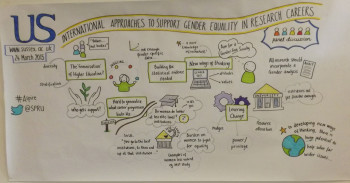
Introduction to Jim Watson’s blog by Dr Ralitsa Hiteva
The Global Apollo Programme to Combat Climate Change report which came out last week warns: “We are in danger”; “The perils of our current course”; “The dangerous shortfall in RD&D”. The report argues that the challenge we face as a society in limiting the rise in global temperature to 2 ̊C is a technological one, and that the solution is simply reducing the cost of renewable energy generation, storage and smart grids.The report calls for making renewable energy cheaper than coal by introducing a more ambitious program of publicly-funded research, rather than continued focus predominantly on incentives like feed-in tariffs for the private sector. However, current levels of publicly funded RD&D (research, development and demonstration) are insufficient to limit the impact of climate change to 2 ̊C. Read more ›
Follow Sussex Energy Group



